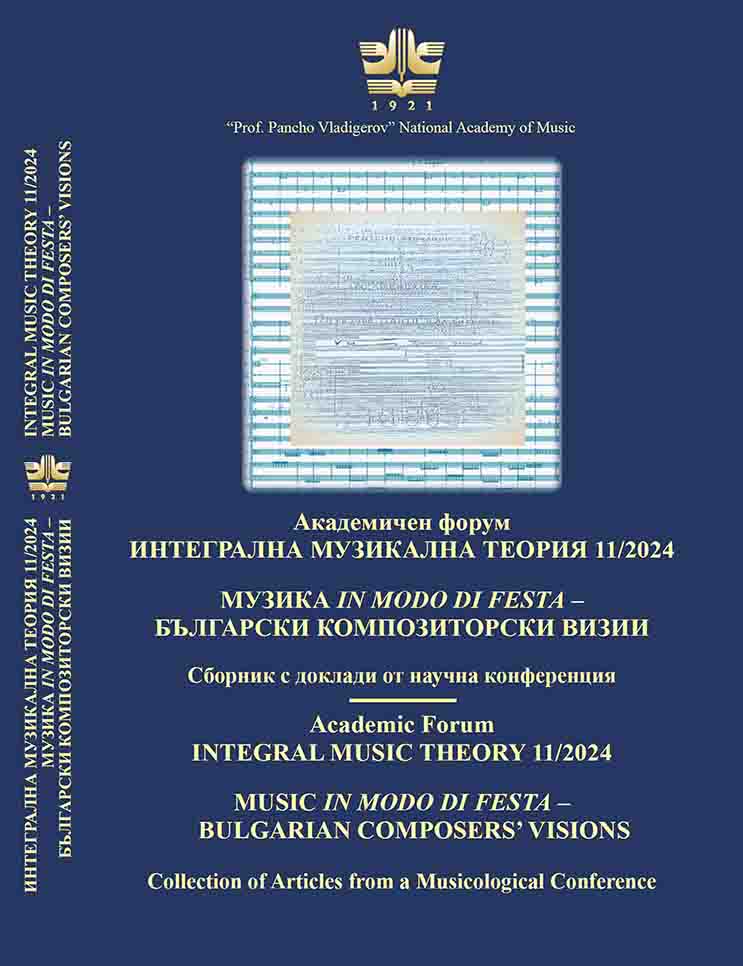Киприана Беливанова и Константин Илиев – „Човек или го пише, или не го пише“. Разговор, дешифриран от фонограма и предоставен от Андрей А. Андреев
Kipriana Belivanova and Konstantin Iliev – “One Either Writes it or Doesn’t Write It”. Conversation, Deciphered from a Phonogram and Provided by Andrey A. Andreev`
Author(s): Kipriana Belivanova, Konstantin IlievSubject(s): Fine Arts / Performing Arts, Music
Published by: Издателство НМА „Проф. Панчо Владигеров”
Keywords: Bulgarian compositional work of the 20th century; modal composition; controlled aleatoric; quasi-folklore; Li in memoriam; Fragments; Tempi concertati
Summary/Abstract: The following conversation from 21.01.1983 between the music historian, publicist and pedagogue Kipriana Belivanova (1942 – 2001) and the great Bulgarian composer and conductor Konstantin Iliev (1924 – 1988) is published post mortem of both artists as a tribute to the contribution of each of them to the development of the Bulgarian musical culture of the 20th century and the scientific thought about it. The decipherment of the conversation recorded on a cassette tape is done by Andrey Andreev – the author of the thesis on the oratorio Spring Festivities by Konstantin Iliev written at the same time under the tutorship of Kipriana Belivanova. In the editorial process, the spontaneity and freedom of expression in the dialogical form have been preserved, through which an exceptional level of professional communication shines through. In the conversation, the problems of periodization of Konstantin Iliev’s creative work depending on the technique used and the attitude towards folklore are commented. Three types of thinking are highlighted, emblematized in: 1) Fragments (1968 – the musical idea as timbre expressed through the means of controlled aleatoric); 2) Concerto for Violin and Orchestra (1971) and Tempi concertati I – V (1968, 1975, 1977, 1980, 1981 – a selection of specific timbres and noises, timbral combinations forming a “colourful graph”); and 3) Li in memoriam (1981/1982), where the timbral origin and the principle of non-repetition of tones (replacing the dodecaphonic technique) are joined by a modal shaping of the material, based on working with modes of varying number of tones, on the foundation of which the whole composition is built. The connection of all the above mentioned ways of organization of the music material with the Bulgarian intonation, as understood by Konstantin Iliev as a quasi-folklore created by the composer (the oratorio Spring Festivities (1975)) is brought out.
Journal: Academic Forum “Integral Music Theory”
- Issue Year: 11/2024
- Issue No: 1
- Page Range: 139-150
- Page Count: 12
- Language: Bulgarian

